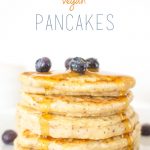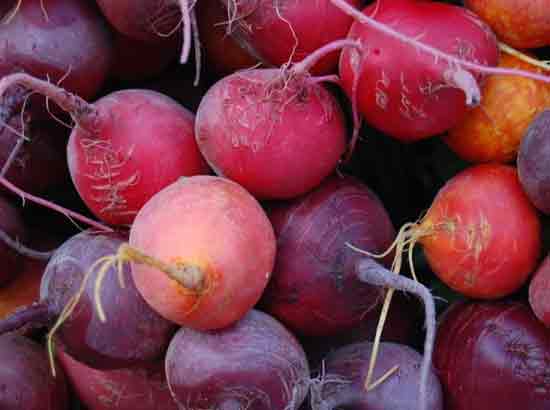How do you stay healthy during the holidays??
Over the last week, I have gotten this question from numerous readers who have been struggling with maintaining a healthy diet during the holidays. There’s so much tempting junk food, so many family gatherings, and plenty of free time to just keep snacking.
The good news is, there are actually quite a few simple things we can do to survive the onslaught of unhealthy food this time of year. So while the season is already in full swing, I wanted to squeeze in this quick article to share eight of my best hacks to eat healthy during the holidays…
1. Narrow Your Eating Window
You may have heard of the 16-8 fast where you cram all your calories into an 8-hour window and fast the other 16 hours. This is actually really good for your metabolism. Especially during the holidays when there is a tendency to overeat, giving yourself a larger break between meals has two main benefits:
- Recovery. If you eat too much unhealthy food, it can be helpful to give your body a break from eating so that it can begin processing all this food. Your liver and digestive system need a good 12+ hours without food to detoxify and reset before taking in more food.
- You’ll eat less. Even if you really overeat during the 8-10 hour window, it still won’t be as many calories as slowly snacking for 16 hours straight.
If you’re worried about overeating, this would be my #1 tip. No matter what you do eat, commit to a 12-16 hour fast. Stop eating at 7:00 at night to 9:00 in the morning, for example, and you’re already a step ahead.
2. Hydrate
The best way to survive the holidays is to drink. Drink early and drink often… Water, I mean! 🙂 Preloading with water before a meal can make it less likely that you’ll overeat at meals. It’s easy to forget this, or to drink other beverages that will add even more calories, but the more water you have before and during meals, the better (and more full!) you’ll feel.
Hydration Extra Credit: apple cider vinegar. If you really want to supercharge your hydration, add 2 teaspoons of apple cider vinegar to a glass of water before each meal and magic will happen. It reduces blood sugar spikes, helps prevent overeating, and more. Dr. Greger has a great video on this subject.
3. BYOB (Bring Your Own Broccoli)
Personally, I make a lot of my own food during the holidays. Very little of my family’s holiday meals are plant-based, so I just bring my own healthier food for myself, and to share with anyone who wants it. If you have healthier alternatives to cookies, pies, candy, meat, etc. then you’re much more likely to eat them. This is critical, because if you don’t have any healthy food to eat, what are you going to do? Bring a fruit tray, bring some whole sweet potatoes, bring a fresh salad, bring a lentil loaf, or just bring hummus 🙂
4. De-Stress
The holidays are a perfect storm for stress eating. Between traffic and late flights and distant relatives and “why don’t YOU have kids yet” and incessant consumerism and short cold days… we can all get a little rattled. In many cases, we turn to food to combat this stress. Well, it also just so happens that grandma made 1,248 sugar cookies yesterday! The combination of high stress + high access to comfort foods is one of the biggest holiday struggles.
Needless to say, it can be really helpful (for your health across the board) to quadruple your focus on distressing this time of year, such as meditation, writing a gratitude journal, or taking a walk to escape grandma — and her sugar cookies.
5. Fiber, Fiber, Fiber
Fiber is amazing. Yes, it helps you feel more full on less calories, which is a huge advantage when tempted to overeat, but the real benefit is that a high-fiber meal also reduces inflammation and blood sugar spikes well into the future. It’s kind of like laying down some guardrails that prevent you from slipping too far.
For this reason, I would especially recommend eating a high-fiber breakfast if you’re planning on eating a larger meal later in the day (my chia pudding is a great option). And, make sure you have high-fiber dishes/snacks to eat throughout the day.
Some of my favorite high-fiber options: chia, flax, beans/lentils, avocado, nuts, barley, sprouted whole wheat bread, and corn.
6. Exercise
It would be a mistake to think you must obsessively burn off all the calories you’re eating through exercise right away. That’s probably not a very healthy mindset. And, that extra calorie burn might just encourage you to eat more in the end. Nevertheless, lying on the couch all day isn’t a great idea either. Exercise will always boost your mood and metabolism, but that is especially true this time of year when we can feel so “blah” and unhealthy. Even simple things like staying active, playing games, and running around the yard can all be a big boost to help you feel better. So when you feel like you need another Christmas cookie, maybe try a walk instead?
7. Keep Track
During normal times, most of us do a pretty good job of tracking what we eat throughout the day. Our meals are structured and obvious. During the holidays, however, it becomes a lot easier to lose track of what and how much we’re eating. Appetizers turn into meals which turn into snacks which turn into numerous trips to the dessert trays. Before long, we forget all the calories we’ve eaten until we feel totally sick.
Bringing a little mindfulness into this process can be helpful. Each time you eat something, make a mental note of what it is. Then, eat mindfully and with appreciation. It’s much harder to trick yourself into thinking, “just one more” when you’re eating mindfully.
8. See the Big Picture
The encouraging thing is that your body is really good at recovering from short term stresses like a session or two of overeating – especially if you have otherwise healthy eating habits.
In the grand scheme of an entire year, a few holidays means very little. The much bigger issue is what we do on the other 364 days. For example, even if you managed to eat like 5,000 calories (~3,000 more than you need) on Christmas, that’s equivalent to overeating just EIGHT extra calories on each of the other 364 days. What ultimately matters to your health is not what you eat on one or two holidays, but the healthy habits you instill throughout the year.
The negative feelings of beating up on yourself probably do more damage than a slice of pumpkin pie, so, even if your diet isn’t perfect this time of year, be understanding with yourself and enjoy the holidays!







Andrew, I am grateful for your 8 tips for healthy holiday eating, and moreover how thoughtfully you communicated them. You gave your 8 tips with realistic explanations and mindsets and pragmatic ways of implementing them! I praise God for your help you’ve given me in celebrating the birth of Christ! Be well, Andrew, and a Merry Christmas and delightful bright start to your 2020!
Hi Erin, I really appreciate that, I hope you had a Merry Christmas and I wish you all the best in 2020 🙂
Hi Andrew, thanks for this helpful and meaningful article 🙂 I loved the BYOB, so funny !! And “why don’t you have kids yet” echoes well.. 😉
Like Erin, I appreciate a lot the way you comunicate advices, with thoughfulness, humor and without any judgment. I feel that on all your articles in general, that’s why I enjoy reading you even if it is quite hard for me sometimes (non fluent english).
I wish you healthy holidays ans the best during this new year 🙂
Thank you, Claire! That means a lot. Ah I wish I had translated versions of my content, but I only speak like 10 French words, haha. Joyeuses fêtes et bonne année 2020! 🙂
Merci Andrew, your french is very good 😉 No problem, not-translated articles are perfect to practice english ! 🙂